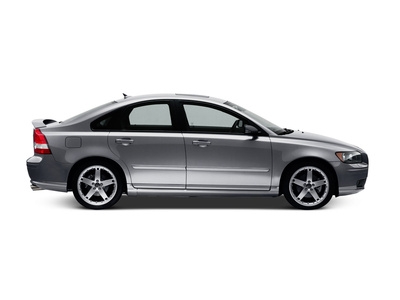
A car that burns too much gas is costing you money unnecessarily and causing easily avoidable damage to the environment. With a few simple checks, regular maintenance and a little work, it is entirely possible for even those with only limited mechanic skills to ensure that they are getting the most miles possible from each drop of fuel.
Check your tyre pressure. Your car's handbook will tell you the correct tyre pressure for your front and rear tyres, matched to the type of load you most often carry. Tyre pumps at gas stations are easy to use, and allow you to program the exact pressure you need to reach. Inflating your tyres to the correct pressure will ensure the optimum amount of contact between tyre and road, and so eliminate any unnecessary friction.

Have your tracking checked. Unless you happen to have a hydraulic lift and various other equipment at home, this is something that you will need to ask a mechanic to do. It will cost around $40 and involves using a light lamp to ensure that all the tyres are properly aligned. Tyres that are even slightly misaligned will be pulling in different directions and wasting gas in the process. Properly aligning your tyres also reduces the risk of uneven wear to your tyres.
Check the aerodynamics of your car for anything causing drag unnecessarily. Roof bars, roof boxes or flags can all add have a detrimental effect on your car's aerodynamics, increasing its drag and adding to your fuel bills.

Remove any unnecessary weight from the car. That box of firewood in your trunk and the car seat that junior has grown too big for are costing you gas money by making your car heavier.
Check your fuel cap fits properly and ensure you do it up tightly. Gas evaporates readily, and even a small crack caused by a loose cap will cost you money.
Get a tune up. This is something you will need a professional to do for you. It involves ensuring that the engine is running as well it should, by adjusting things like the air/fuel mix or the idle speed of the carburetor, and tightening cylinder head bolts.

Drive more efficiently. Driving faster than you need to burns more gas than is necessary. Use cruise control as much as possible so as to maintain a steady speed. Stop accelerating as soon as you see a stop sign or a red light, rather than using the gas pedal right up until you stop. Remember that each time you have to brake, you are wasting energy. Use higher gears as early as possible. Driving up a slope burns more fuel, so increase your speed at the bottom of small hills and then cost up them. Keep your windows closed so as to reduce drag. Use air conditioning and other equipment sparingly.
Service your engine. If you're not confident how to do any of this, you might prefer to ask a mechanic, but it's relatively simple and your car handbook will tell you where the various parts are. Start by checking your air filters. A clogged filter can prevent your engine from working efficiently and increase fuel consumption by up to 10 percent. Replace worn spark plugs: An efficiently sparking engine can burn up to 5 percent less gas than one with worn, ineffective plugs. Change your oil and ensure you are using the appropriate grade.